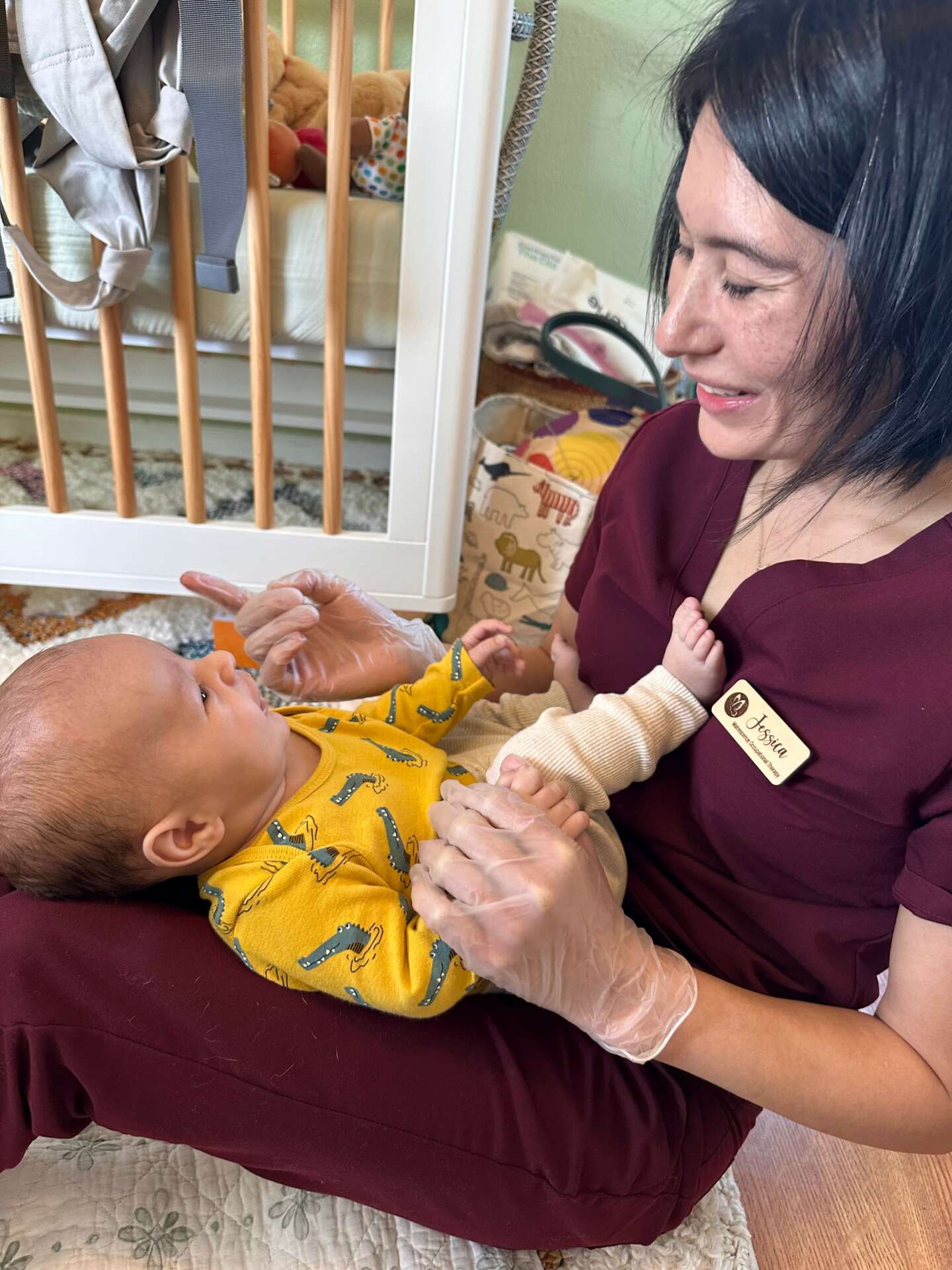We’re excited to introduce you to Jessica Peterson. We hope you’ll enjoy our conversation with Jessica below.
Jessica, looking forward to hearing all of your stories today. It’s always helpful to hear about times when someone’s had to take a risk – how did they think through the decision, why did they take the risk, and what ended up happening. We’d love to hear about a risk you’ve taken.
In 2021, a year into the COVID-19 pandemic, I felt I was about to lose my mind. With my entire family at home 24/7, my job at the hospital on hold, and two little kids constantly underfoot, I was ready for a fresh chapter. An occupational therapist by trade, I’d spent the last seven years in a position at a local hospital. Over 8 the years my schedule shifted with 2 pregnancies and maternity leaves. By day, I was Mom; on weekends, occasionally, the Occupational Therapist. Keeping a toe in my career while dedicating myself to my family worked well until the pandemic struck. As the world adjusted, we eventually found an incredible school for our children, and I resumed my hospital job. Yet, something inside me had shifted.
I decided it was time to go back to school was accepted into a doctorate program in occupational therapy, which forced the balance of work, academics, and family life I so badly needed. I knew early on the direction I wanted to take with my thesis. During the pandemic I had watched not only myself, but other mothers, go from being friends, professionals, and hobbyists to being MOM, MOM, MOM all the time. Between trying to keep my household from toppling to devising endless novel activities to occupy young children, the verge of overwhelm became an all-too-common emotional space for me. I wanted my doctoral work to explore this sense of overwhelm and chaos that was motherhood, and to do something about it.
A year later, I invited my colleague, Gayle, on a field trip to San Antonio. Recently, she’d transitioned back to full-time work post-maternity, only to realize her need for more flexibility. We filled 3 hours in the car talking about inadequate support for families and mothers. By the time we returned to Austin, we’d decided our mission: to bring occupational therapy to mothers.
We had no idea if what we were imagining had ever actually been reproduced in the real world, and we had no idea how to run a business or deliver on our dream.
But it felt right. It felt exhilarating and freeing, and best of all, it lit that fire under both of us that gave us the fuel to try something we had never attempted before to give the world what we could have used as new mothers. We would start a business doing something that had likely never been done before, and ready or not, we were going to try our hardest to make it happen.
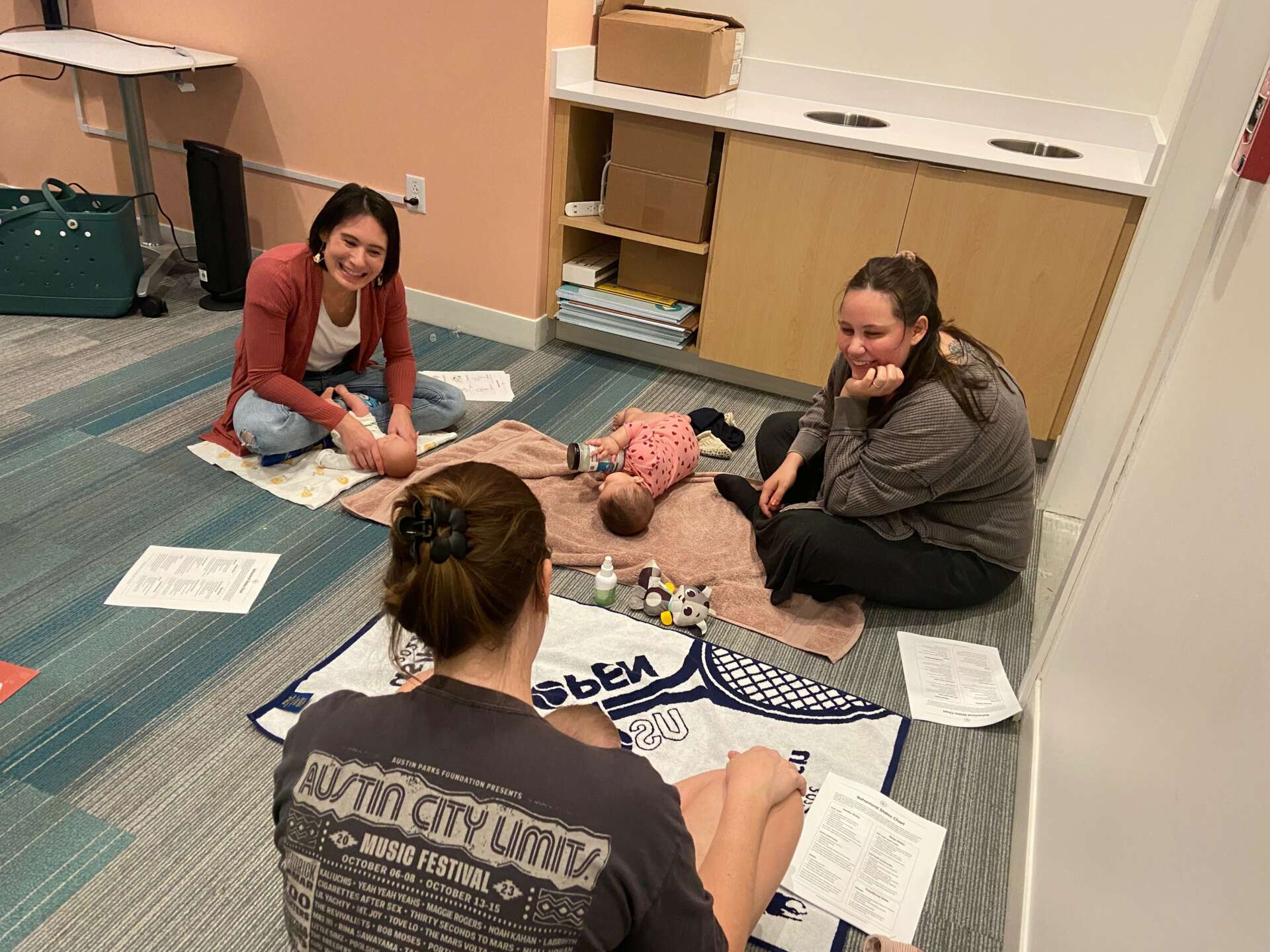
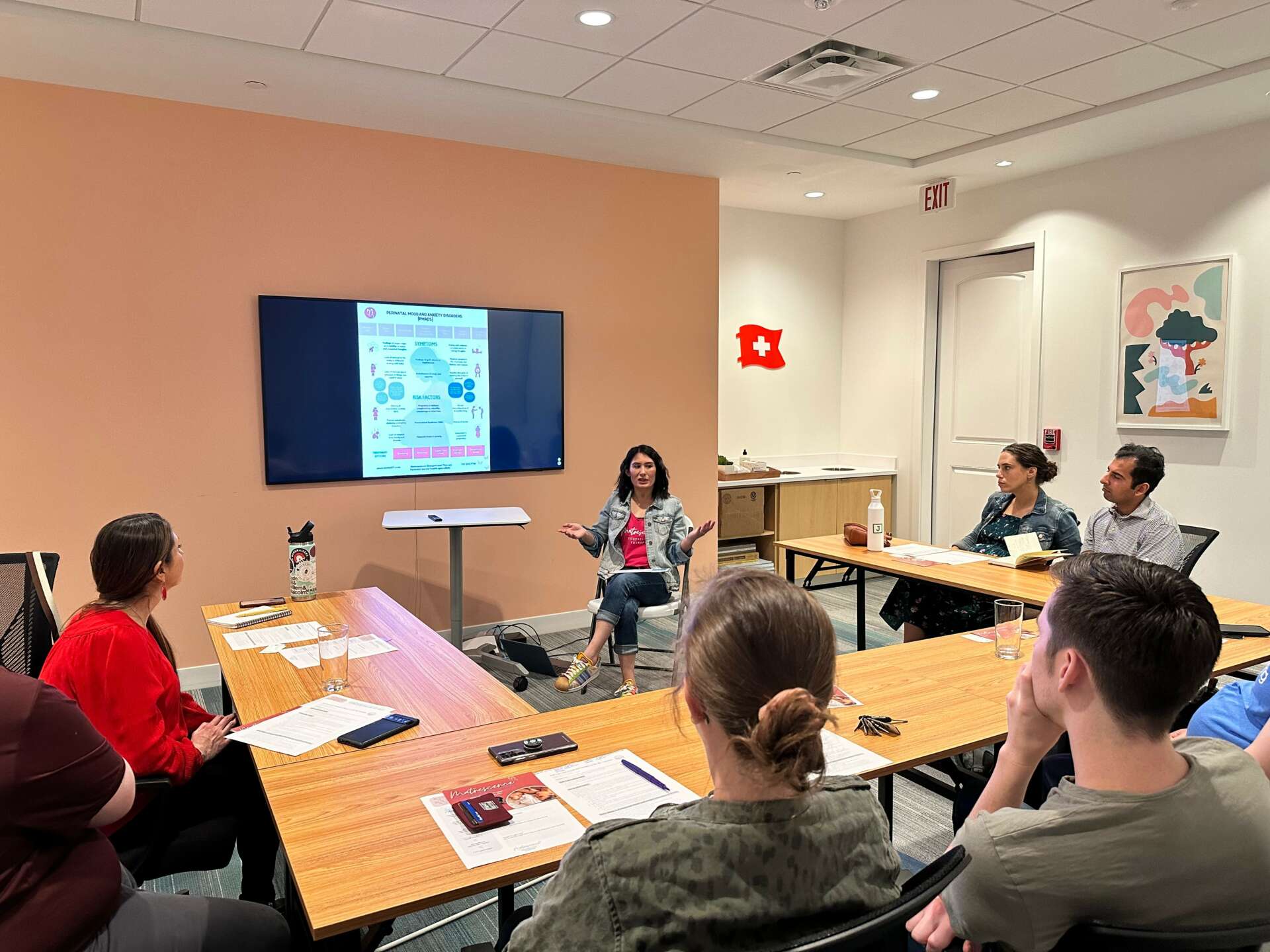
Awesome – so before we get into the rest of our questions, can you briefly introduce yourself to our readers.
Hi! My name is Jessica Peterson. I am a maternal health occupational therapist, certified lactation counselor, perinatal mental health professional, certified infant massage educator and a mother. After more than a decade of professional experience working in traditional medical settings, in 2022 I co-founded Matrescence Occupational Therapy, a mobile private practice focusing on early motherhood and supporting common challenges for mothers and their babies.
My co-founder, Gayle Schwee, and I were occupational therapists before we became mothers. We are trained to always consider the environment, the whole person, and daily activities when looking at problems or challenges. Motherhood, it turned out, was full of problems and challenges. From severe nausea during pregnancy, permanent separation of the abdominal muscles, vaginal tears, breastfeeding difficulties, anxiety, depression, and a loss of a familiar identity, between the two of us we had experienced a lot of things we hadn’t anticipated.
We both struggled in different ways to make motherhood work the way we had dreamed, the way we saw it played out in the movies and on Instagram. But what we both really wanted was someone, a professional, to come into our homes, help us set things up in a way that made sense, and teach us more about what in the world was going on with our bodies, our minds and our babies. We needed an occupational therapist.
Matrescence Occupational Therapy does all of these things. As maternal healthcare providers, Gayle and I support our clients in their homes to solve whatever problems and challenges they come across during the first year of a baby’s life. We support both mother (or parent) and baby in a way that often takes a lot of detective work, education, tools and strategies to pull together a plan for a solution.
We most commonly support families with feeding issues including bottle refusals, tongue tie, lactation, breastfeeding, starting solid foods, sleep and managing anxiety and stress. What makes us stand out from traditional therapy is our approach to mental health and the big picture. As certified providers in perinatal mental health, we can screen for perinatal mood and anxiety disorders as well as address typical parental anxiety, stress and mood changes that come with early parenthood. When we do an evaluation, no matter what the problem is, we look at a lot of things at once. We address the physical, social and sensory environment, the mental and physical health of both mom and baby (and sometimes more of the family too!), and we collaborate with our clients to take actionable steps toward more meaningful and functional daily activities.
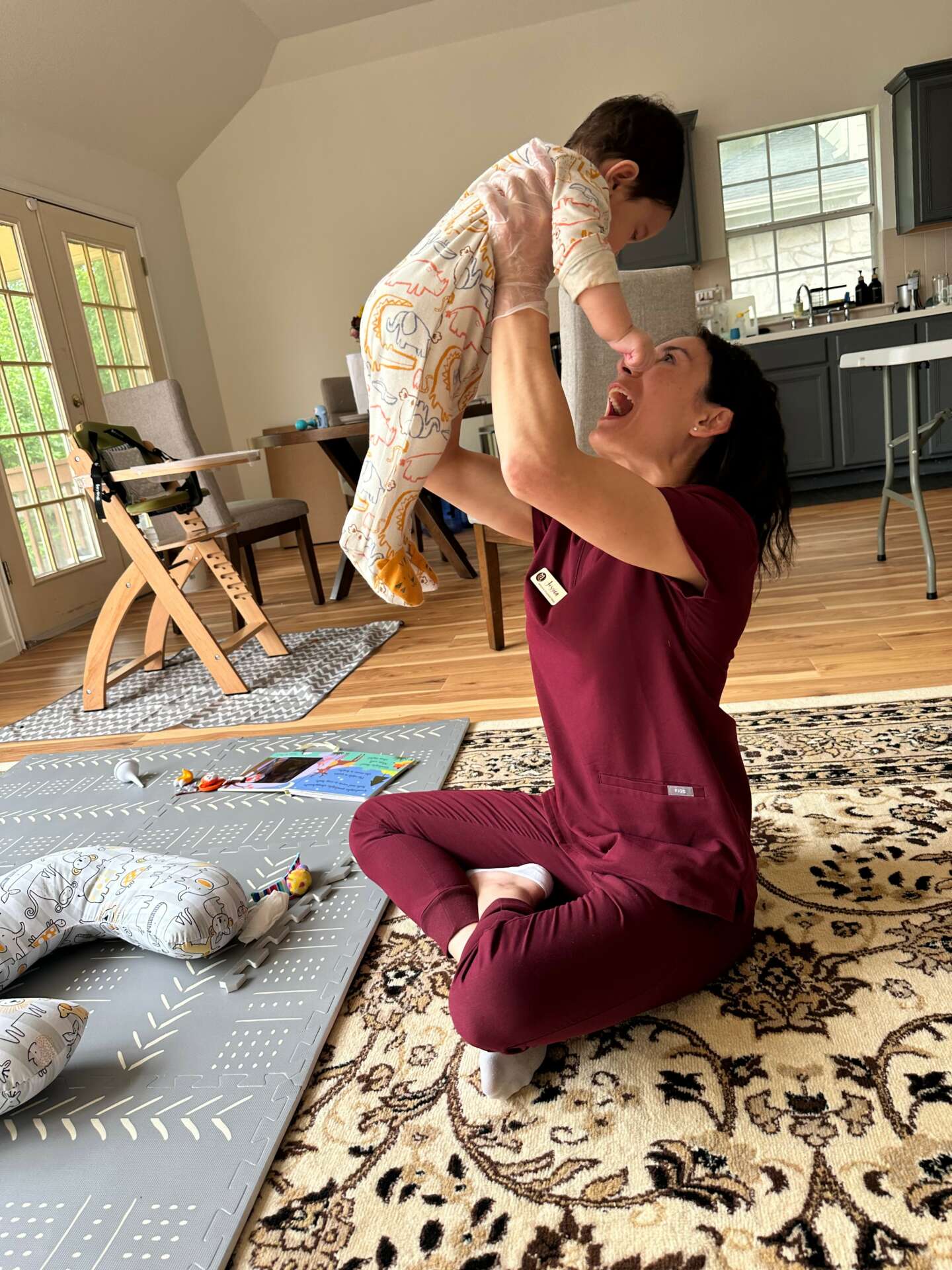
How about pivoting – can you share the story of a time you’ve had to pivot?
When my co-owner and I started our private practice, we wanted to provide a service for the problems that we wished we had support with during our motherhood journeys. We both wished we had more support for the things that ended up being problems in the long run. We thought that mothers would want to have education on how to take care of their bodies and their minds in pregnancy and postpartum.
We wanted to offer a series of educational workshops to teach all of the information we wish we had as new parents. So we tried it, and it completely flopped. Almost no one signed up for the classes. When we told mothers older children what we wanted to teach, they got it. They said they wished they had had us when they had babies. But when we talked to mothers who were actually in their 3rd and 4th trimesters, their eyes glazed over. We realized in that moment, they were not worried about what would happen to themselves, they were only worried about their babies.
What we failed to realize was how hazy those first months of motherhood were. New parents were just surviving. They were figuring out how to take care of a new human for the first time. They were sleep deprived, emotional and largely overwhelmed.
We realized that we had to meet families where they were. We changes our approach slightly to address common issues mothers and parents were having with their babies first, and then once those issues were addressed, we could then start addressing any issues with the mother.
Now we primarily address common issues like infant feeding difficulties, sleep, sensory regulation and concerns with development. But we keep the bigger picture in mind. Because we know that the biggest thing you can do for a baby is to have a happy, healthy and confident parent.
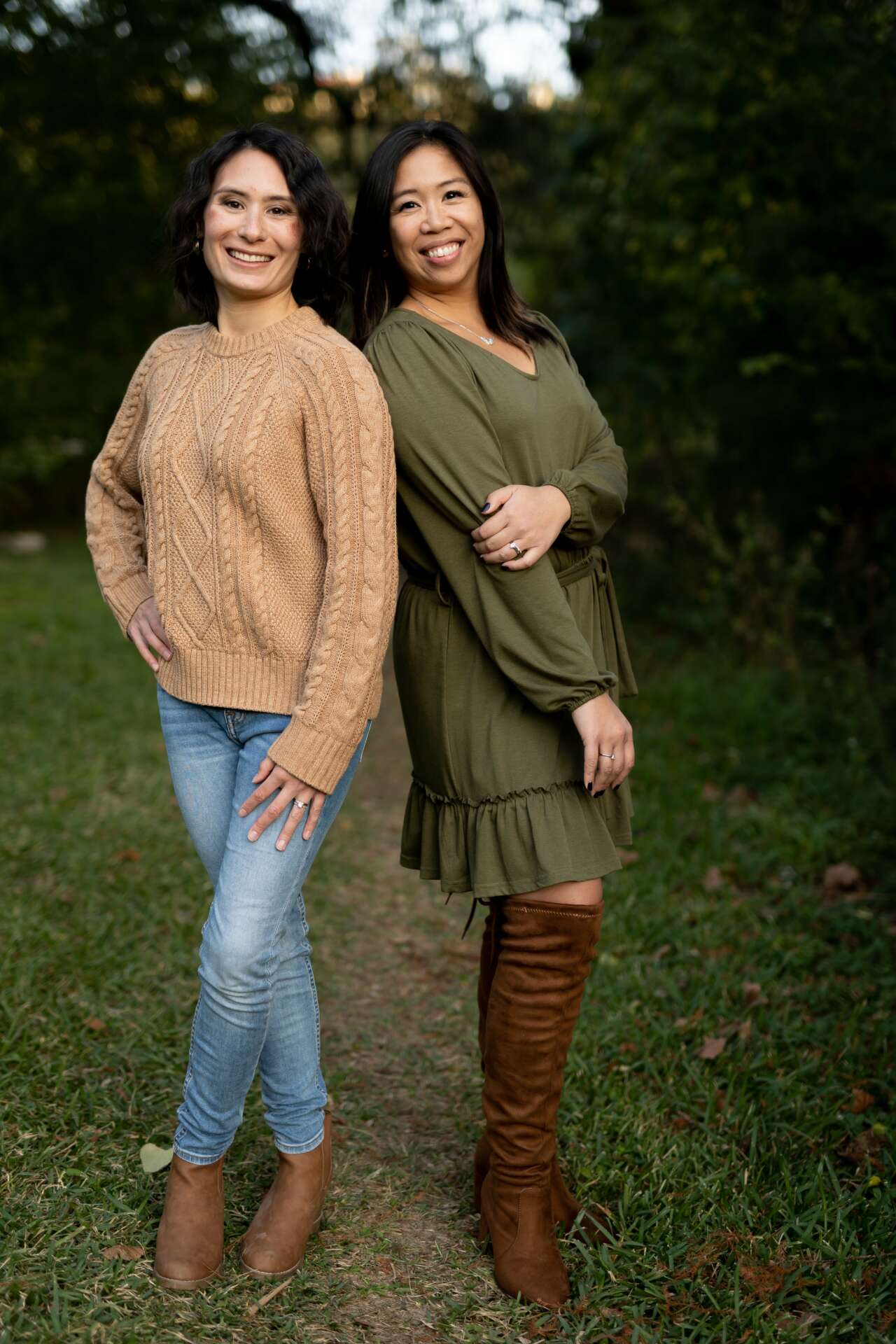
We’d love to hear about how you met your business partner.
My business partner, Gayle, and I met after I returned to work from my second maternity leave. We both worked in the same department in an inner-city hospital, but because I worked mainly on the weekends, it took a few months before we were working in the same day. She came up to me at lunch. “So you’re a mom and you work part time? Do you like it?” Gayle wasn’t even married yet, but she knew she would have a family someday soon, and Gayle was a planner. Over the years, Gayle got married, bought a house, and had a baby. We kept talking about work, our careers and our families.
In the hospital, we saw patients after acute illness, injury, and surgery and helped them regain skills, strength, and endurance to return to everyday life. Our experiences after childbirth mimicked some of the anguish, anxiety, fear, uncertainty, bodily changes, and health complications of our patients after a health crisis. It was impossible for us not to see the connection between what we do professionally and the struggles we and others experience around early motherhood. I gave birth in a free-standing birthing center and found education and peer support in the birth community of Austin, and Gayle gave birth in a hospital amidst a global pandemic that removed in-person support entirely. We both experienced pelvic floor issues and breastfeeding difficulties. Gayle had an emergency c-section and needed to rehabilitate after surgery while taking care of a newborn and being isolated from family. Neither of us were offered an in-depth postpartum mental health evaluation, a thorough physical examination, or tools by a professional to combat common barriers during new motherhood.
During one fateful day trip Gayle and I visited San Antonio. Recently, she’d transitioned back to full-time work postpartum, only to realize her need for more flexibility. We filled 3 hours in the car talking about inadequate support for families and mothers. By the time we returned to Austin, we’d come to the conclusion that the professional we needed most in those moments was an occupational therapist. A few weeks later we formed an LLC and started the first practice in occupational therapy in our area specializing in maternal and perinatal health and wellness.
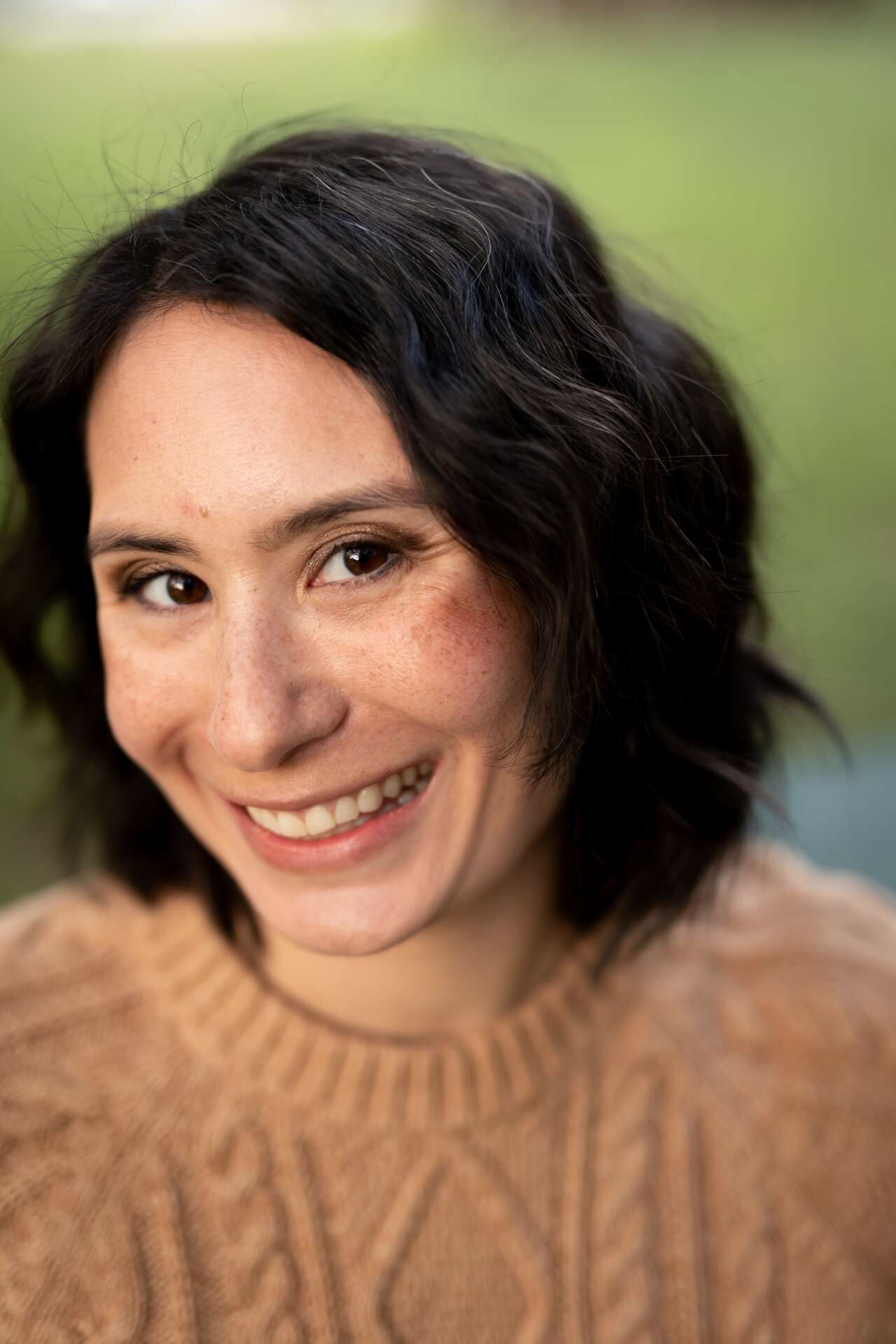
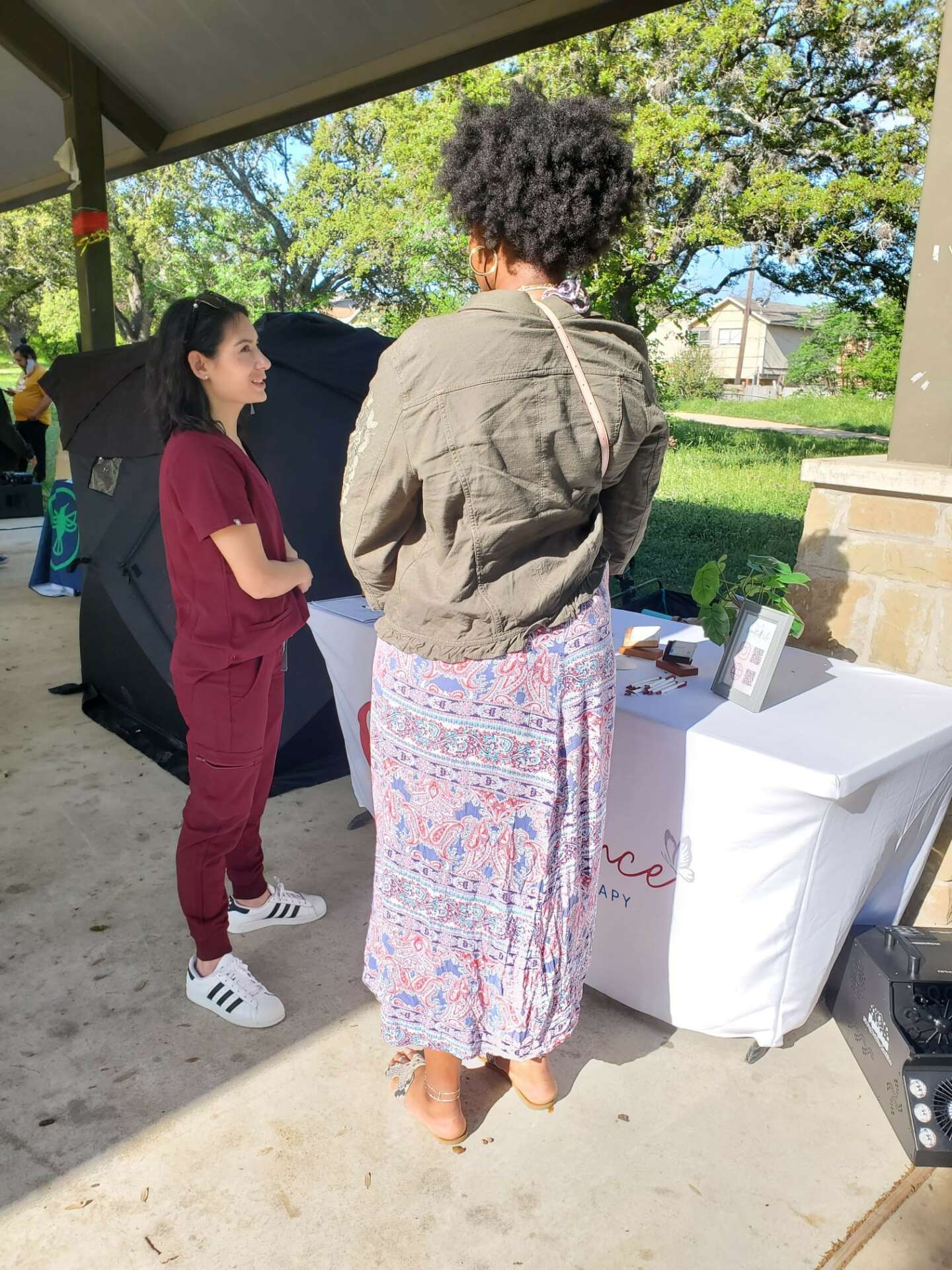
Contact Info:
- Website: https://matrescenceot.com
- Instagram: https://www.instagram.com/matrescence_ot/
- Facebook: https://www.facebook.com/matrescenceOT
- Linkedin: https://www.linkedin.com/company/matrescenceot
Image Credits
Melanie Grizzel


